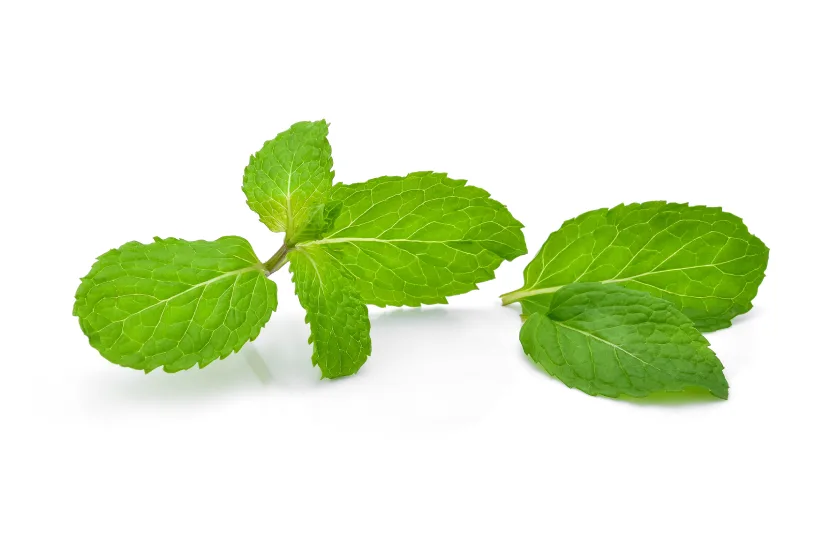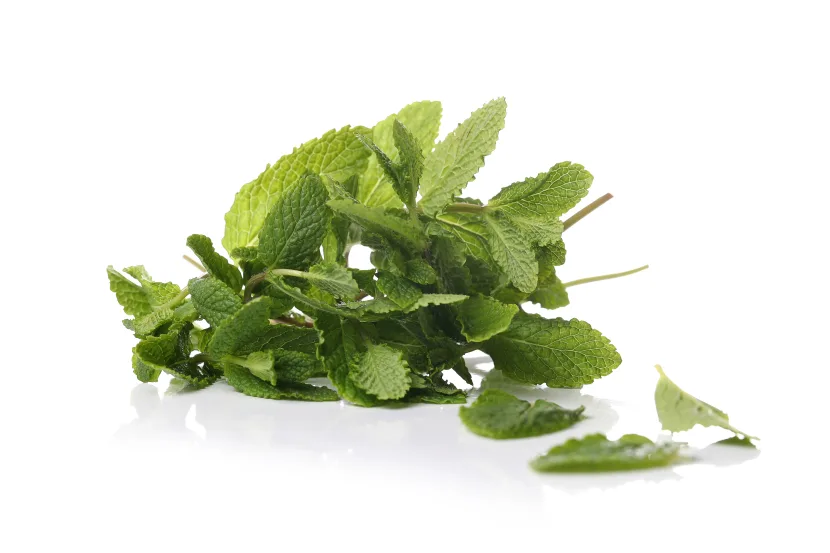Introduction to the World of Mentha
The diverse world of mentha varieties offers more than just a refreshing flavor – it presents a treasure trove of health benefits that have been valued for centuries. As you explore the various types of mentha plants, you’ll discover their remarkable versatility in supporting wellness and enhancing your daily health routines.
Common Types and Their Characteristics
Among the most notable mentha varieties, you’ll find several distinctive types that stand out for their unique properties. The mentha aquatica (water mint) thrives in damp conditions and offers a crisp, fresh aroma. The widely popular mentha spicata, commonly known as spearmint, provides a sweet, mild flavor perfect for both culinary and therapeutic applications. The mentha piperita (peppermint) combines the best qualities of water mint and spearmint, resulting in a more potent variety with enhanced beneficial properties.
Historical Background and Cultural Significance
Throughout history, mentha plants have played a crucial role in traditional medicine and cultural practices worldwide. The use of mentha essential oil dates back to ancient civilizations, where it was prized for its therapeutic properties and invigorating scent.

Popular Mentha Varieties and Their Unique Properties
Key Cultivars (Mentha aquatica, spicata, piperita)
Each member of the mentha family brings its own set of health benefits to the table. The mentha spicata plant is particularly noted for its gentle yet effective digestive properties, making it a excellent choice for after-meal tea. Mentha piperita oil stands out for its potent cooling effect and concentrated beneficial compounds. The mentha suaveolens (apple mint) offers a milder, fruity profile that’s especially appealing in therapeutic applications.
Growing Characteristics and Identification
While this guide focuses on health benefits rather than cultivation, understanding the basic characteristics of mentha varieties helps you make informed choices about products. The mentha viridis (another name for spearmint) and other varieties each contain different levels of beneficial compounds, which influence their therapeutic properties.
The Science Behind Mentha Essential Oils
Extraction Methods and Processing
The process of creating mentha oil involves careful extraction to preserve the beneficial compounds. Whether you’re interested in how to make mentha oil at home or choosing commercial products, understanding the extraction process helps you assess quality. Professional extraction methods ensure the highest concentration of beneficial compounds, particularly in mentha arvensis leaf oil, which is known for its high menthol content.
Chemical Composition and Active Compounds
The therapeutic properties of mentha varieties stem from their rich composition of beneficial compounds. These natural components work synergistically to provide various health benefits, from supporting digestive health to promoting respiratory wellness. The concentration and composition of these compounds vary among different mentha varieties, which explains their diverse therapeutic applications.
Health Benefits and Therapeutic Applications
When exploring mentha varieties, you’ll discover a wide range of health benefits that have been supported by both traditional use and modern research. These versatile plants offer multiple therapeutic applications that can enhance your daily wellness routine.
Digestive Health Support
Among the most well-documented benefits of mentha varieties is their positive impact on digestive health. The natural compounds found in mentha essential oil, particularly in mentha piperita oil, can help soothe digestive discomfort and support healthy gut function. Research suggests that these beneficial properties are particularly pronounced in certain mentha varieties, such as peppermint, which contains higher concentrations of active compounds.
Regular consumption of mentha spicata (spearmint) tea can help maintain digestive comfort and reduce occasional bloating. The gentle nature of mentha plants makes them suitable for daily use as part of your digestive health routine.
Respiratory Benefits
The therapeutic properties of mentha varieties extend to respiratory health support. The natural compounds in mentha oil, especially those found in mentha arvensis leaf oil, can help promote clear breathing and respiratory comfort. When used in aromatherapy, these oils can provide a refreshing sensation that many find beneficial during seasonal challenges.
Mental Wellness Applications
The aromatherapeutic properties of various mentha varieties can contribute to mental wellbeing. The refreshing scent of mentha essential oil has been traditionally used to promote alertness and mental clarity. Whether diffused in your workspace or incorporated into your self-care routine, these natural aromatics can help create an uplifting environment.
Culinary Uses and Applications
Fresh Herb Applications
While focusing on health benefits, it’s worth noting that incorporating fresh mentha plants into your diet can be both enjoyable and beneficial. The mentha spicata plant is particularly versatile in culinary applications, offering both flavor and potential health benefits. Fresh leaves can be added to water, tea, or healthy smoothies to enhance both taste and nutritional value.
Flavor Profiles of Different Varieties
Different mentha varieties offer unique flavor profiles that can complement your healthy eating habits. The mentha viridis provides a sweet, refreshing taste, while mentha piperita seeds can be used to grow plants that offer a more intense, cooling sensation. Understanding these differences helps you choose the most suitable variety for your wellness needs.
Mentha in Personal Care and Beauty
Skincare Benefits
The natural properties of mentha varieties make them valuable ingredients in skincare routines. Products containing mentha essential oil can provide a cooling and refreshing sensation while supporting skin health. Some formulations, such as mentha lip gloss, combine the beneficial properties of mint with cosmetic applications.
Oral Care Applications
The refreshing properties of mentha varieties have made them popular in oral care products. The natural compounds in mentha oil, particularly from mentha piperita oil, contribute to oral freshness and comfort. When choosing oral care products, look for those that utilize high-quality mentha extracts for optimal benefits.
Aromatherapy Uses
Many mentha varieties excel in aromatherapy applications. Whether using mentha aquatica or other varieties, the aromatic compounds can help create an invigorating and uplifting atmosphere. Understanding how to make mentha oil for aromatherapy purposes can help you incorporate these benefits into your wellness routine.
Growing and Harvesting Mentha Plants
While our primary focus remains on health benefits, understanding how mentha varieties are sourced ensures you can make informed decisions about your wellness products. The quality of mentha plants directly impacts their therapeutic potential, making cultivation and harvesting practices particularly relevant for health-conscious consumers.
Cultivation Requirements
When selecting products derived from mentha varieties, it’s beneficial to understand that optimal growing conditions contribute to the plant’s therapeutic properties. Premium mentha essential oil often comes from plants grown in regions with ideal climate conditions, ensuring maximum concentration of beneficial compounds.
Harvesting Best Practices
The timing and method of harvest significantly influence the potency of different mentha varieties. Proper harvesting techniques preserve the delicate balance of therapeutic compounds found in mentha plants, particularly important for products like mentha piperita oil and other concentrated extracts.
Processing and Storage Methods
Drying Techniques
Professional processing facilities employ specific drying methods to preserve the beneficial properties of mentha varieties. Proper drying is crucial for maintaining the therapeutic potential of mentha aquatica and other species, ensuring that the final products deliver optimal health benefits.
Oil Extraction at Home
While learning how to make mentha oil at home can be rewarding, it’s important to note that commercial extraction methods typically yield more consistent results. However, for those interested in a more hands-on approach, simple water-based extractions of mentha spicata plant material can provide mild therapeutic benefits for personal use.

Commercial Products and Applications
Essential Oils and Extracts
The market offers various products derived from mentha varieties, each with specific wellness applications. High-quality mentha oil products undergo rigorous testing to ensure purity and potency. When selecting products, look for those that specify the exact species used, such as mentha arvensis leaf oil or mentha viridis extract.
Personal Care Products
The beauty and personal care industry frequently incorporates mentha essential oil into various formulations. From refreshing facial mists to soothing body care products, mentha-based ingredients can enhance your self-care routine. Products like mentha lip gloss combine both cosmetic and comfort benefits.
Therapeutic Products
Many therapeutic products harness the beneficial properties of mentha varieties. Whether in the form of mentha suaveolens extracts or mentha piperita seeds products, these preparations are designed to support various aspects of health and wellness.
Quality Considerations and Safety
Purity Standards
When selecting products containing mentha varieties, purity becomes paramount. Look for items that clearly state their source and concentration of mentha essential oil. Quality manufacturers typically provide detailed information about their extraction methods and testing protocols.
Potential Side Effects
While mentha plants generally offer excellent safety profiles, it’s important to understand potential sensitivities. Some individuals may experience increased sensitivity to concentrated forms of mentha oil, particularly when used topically. Always perform a patch test before applying new mentha-based products to your skin.
Usage Precautions
Different mentha varieties may interact differently with individual body chemistry. Start with small amounts when incorporating new mentha-based products into your routine, particularly when using concentrated forms like mentha piperita oil or other potent extracts.
Sustainability and Environmental Impact
Understanding the environmental aspects of mentha production helps you make more conscious health and wellness choices. Sustainable practices in cultivating these beneficial plants not only benefit the environment but also often result in higher-quality therapeutic products.
Cultivation Practices
Modern cultivation of mentha varieties employs sustainable farming methods that preserve soil health and biodiversity. These practices ensure that beneficial compounds in plants like mentha aquatica and mentha spicata develop optimally, resulting in more effective therapeutic products.
Economic Importance
The global demand for mentha essential oil and related products has created significant economic opportunities while raising important sustainability considerations. Understanding how these therapeutic plants are commercially produced helps you make informed decisions about your wellness purchases.
Frequently Asked Questions (FAQs)
Q: What are the main differences between various types of mint in terms of health benefits?
A: Different mentha varieties offer distinct therapeutic properties. For example, mentha piperita oil is known for its potent cooling effect and digestive benefits, while mentha spicata plant extracts provide milder effects suitable for daily use.
Q: How can I ensure I’m purchasing high-quality mint oil products?
A: Look for products that clearly specify the plant species used, provide transparency about extraction methods, and undergo third-party testing. Quality mentha essential oil products should list the specific species (such as mentha arvensis leaf oil) and extraction method.
Q: Can I use different mint varieties interchangeably?
A: While many types share similar properties, their potency and specific benefits can vary. For instance, mentha suaveolens offers milder effects compared to mentha piperita oil. Always follow product-specific guidelines for best results.
Q: Are there any precautions to consider when using mint-based products?
A: While these herbs are generally safe, start with small amounts to test your sensitivity, especially with concentrated forms like mentha oil. Consult a healthcare provider if you have specific health concerns.
Q: What’s the best way to incorporate mint varieties into my daily wellness routine?
A: You can start with mild forms like mentha viridis tea or diluted essential oils for aromatherapy. Products like mentha lip gloss offer an easy way to experience benefits in daily care routines.
Conclusion: Making the Most of Natural Mint Benefits
The diverse world of mentha varieties offers remarkable potential for supporting your health and wellness journey. From traditional uses to modern applications, these versatile plants continue to prove their value in promoting wellbeing. Whether you choose essential oils for aromatherapy, specific varieties for targeted benefits, or simple herbal teas for daily enjoyment, understanding these plants helps you make informed choices for your health needs.
Remember that while all mint plants share certain beneficial properties, each variety offers unique characteristics worth exploring. By choosing high-quality products and using them appropriately, you can maximize the potential benefits while maintaining safety and effectiveness.
As you incorporate these therapeutic herbs into your wellness routine, stay mindful of your body’s responses and adjust usage accordingly. Whether you’re seeking digestive support, respiratory comfort, or simply enjoying the refreshing properties these plants offer, the key lies in finding the right balance for your individual needs.
Your journey with natural mint varieties can be both rewarding and beneficial when approached with knowledge and awareness. As research continues to unveil new potential benefits, these versatile plants remain a valuable addition to modern health and wellness practices.



